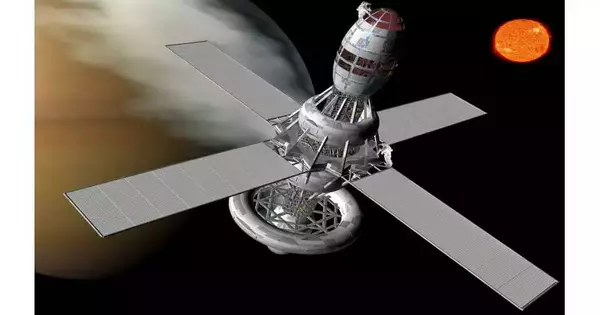There is increasing evidence that astronauts are more likely to contract infections while in space. In addition to respiratory and non-respiratory illnesses, astronauts on the International Space Station (ISS) frequently suffer from skin rashes. It is also known that astronauts shed more live virus particles, for instance, the Epstein-Barr virus, varicella zoster, herpes simplex, and cytomegalovirus, which cause shingles. Space travel may weaken our immune system, according to these observations. However, what could cause such a weak immune system?
Dr. Odette Laneuville, an associate professor at the Department of Biology at the University of Ottawa and the lead author of a new study published in Frontiers in Immunology, stated, “Here we show that the expression of many genes related to immune functions rapidly decreases when astronauts reach space, while the opposite happens when they return to Earth after six months aboard the ISS.”
The researchers looked at how genes were expressed in white blood cells called leukocytes in a group of 14 astronauts—11 men and three women—who had been on the ISS between 4.5 and 6.5 months between 2015 and 2019. Each astronaut’s four milliliters of blood were taken at ten different times to isolate leukocytes: four times while in flight, once prior to flight, and five times once back on Earth.
“The next question is how to apply our findings to guide the design of countermeasures that will prevent immune suppression while in space, particularly for long-duration flight,”
Dr. Odette Laneuville, an associate professor at the Department of Biology of the University of Ottawa,
There and back again
In all, 15,410 genes in leukocytes were found to be expressed differently. The researchers found two clusters of these genes, each with 247 and 29 genes, that changed their expression simultaneously over the course of the study.
When reaching space, genes in the first cluster were turned down, but when they came back to Earth, they were turned up again. Genes in the second cluster were the opposite. The majority of the genes in both clusters coded for proteins, but there was a difference: For the genes in the first cluster, their primary function was related to immunity, while for the second cluster, they were related to the structures and functions of cells.
These findings suggest that these gene expression changes quickly weaken an individual’s immune system when they travel to space.
“A weaker immune system makes it more likely that astronauts will get sick, which makes it harder for them to do the hard jobs they have to do in space.” Astronauts would have limited access to care, medication, or evacuation while in space if an infection or immune-related condition evolved to a severe state requiring medical care,” stated Dr. Guy Trudel, a rehabilitation physician, researcher, and professor at the Department of Cellular and Molecular Medicine of the University of Ottawa.
Return to Earth’s normal levels,
But there’s a silver lining to this storm: The data demonstrated that, on average, after a few weeks, the majority of genes in either cluster returned to their pre-flight levels of expression within one year of their return to Earth. According to these findings, astronauts returning to Earth face an increased infection risk for at least one month following their return.
The authors, on the other hand, do not yet know how long it takes for immune resistance to fully return to its strength prior to flight. Age, gender, genetic differences, and childhood exposure to pathogens are likely to affect this period’s length.
The authors hypothesized that “fluid shift,” in which blood plasma is redistributed from the lower to the upper part of the body, including the lymphatic system, triggered the change in leukocyte gene expression in microgravity. Within the first few days in space, this results in a 10% to 15% decrease in plasma volume. Large-scale physiological adaptations, including altered gene expression, are known to accompany fluid shifts.
Immune deficiency prevention in space
According to Laneuville, “The next question is how to apply our findings to guide the design of countermeasures that will prevent immune suppression while in space, particularly for long-duration flight.”
“Detection of both immune dysfunction and subclinical inflammation would be beneficial to astronauts’ health while in space, particularly during lengthy missions. With the intention of preventing a progression toward severe symptoms, early detection provides opportunities for intervention.”
More information: The transcriptome response of astronaut leukocytes to long missions aboard the International Space Station reveals immune modulation, Frontiers in Immunology (2023). DOI: 10.3389/fimmu.2023.1171103. www.frontiersin.org/articles/1 … mu.2023.1171103/full





